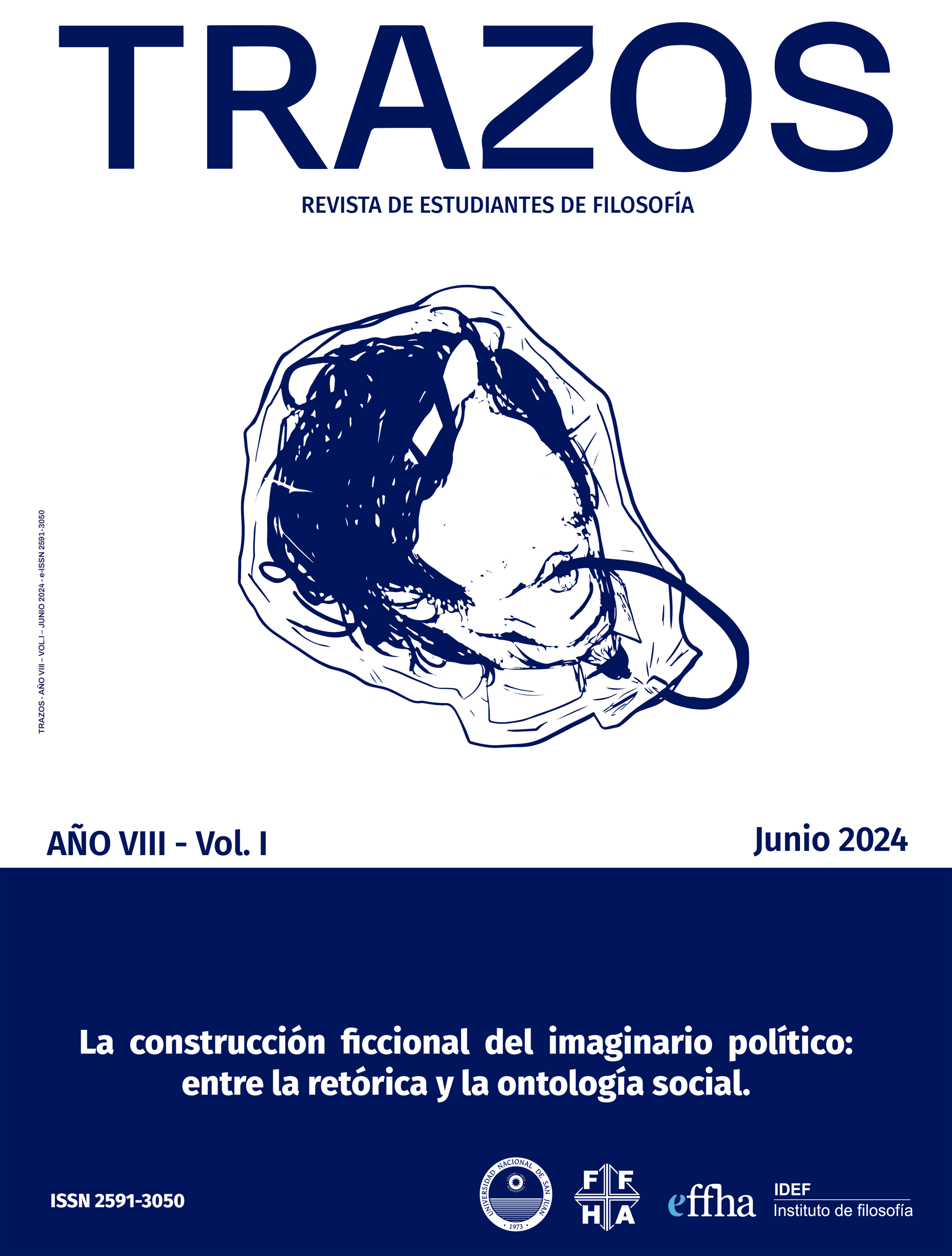Care As An Articulator Of Beliefs And Values: Approaches To Intentional And Situated Responsibility
Main Article Content
Abstract
This paper presents the problem of the relationship between beliefs and values, as well as the need for an approach to relationships with others, from an ethics of responsibility and care. Knowledge is the most powerful affct, in the sense that it is the one with the greatest capacity to affct the life of human beings and, in general, life in our world. Knowledge is necessary to institute the politics of recognition: the knowledge of otherness makes possible the recognition of oneself and of the other (Ricoeur, 2007, 2019). Additionally, knowledge is necessary to value care work and establish care policies: it is a type of good that follows the logic of cooperation, rather than the logic of scarcity of material goods (Lazzarato, 2018). And, fially, knowledge is necessary to evaluate ethical actions and to ac- count for oneself: to care for oneself and for the other, and to be responsible.
Article Details

This work is licensed under a Creative Commons Attribution-NonCommercial-ShareAlike 4.0 International License.
References
Fuente, M. (2022). El cuidado como experiencia estética según John Dewey. Index Enferm, 30(2). https://goo.su/iPzxc5
Lazzarato, M. (2018). Teorías de las riquezas, teorías de los conocimientos, teorías de las artes. En A. Abril (Trad.), Potencias de la invención. La psicología económica de Gabriel Tarde contra la economía política (pp. 141-202). Cactus.
Ricoeur, P. (1996). El sí y la intencionalidad ética. En A. Neira (Trad.), Si mismo como otro (pp. 173-212). Siglo XXI.
Ricoeur, P. (1997). Poder, fragilidad y responsabilidad. En G. Aranzueque (Trad.), Monográfio: Horizontes del relato: lecturas y conversaciones con
Paul Ricoeur (pp. 75-77). Cuaderno Gris.
Ricoeur, P. (2007). La lucha por el reconocimiento y la economía del don. Nombres, (21), 13-24. https://revistas.unc.edu.ar/index.php/NOMBRES/article/view/2382
Ricoeur, P. (2010). Ética y Cultura. Prometeo Libros.
Ricoeur, P. (2019). El sufrimiento no es el dolor. ISEGORÍA, (60), 93-102. https://doi.org/10.3989/isegoria.2019.060.06

